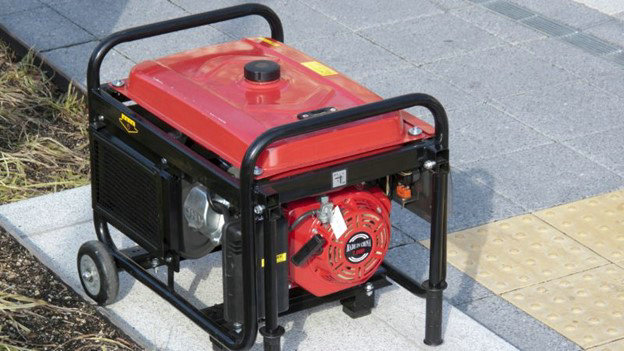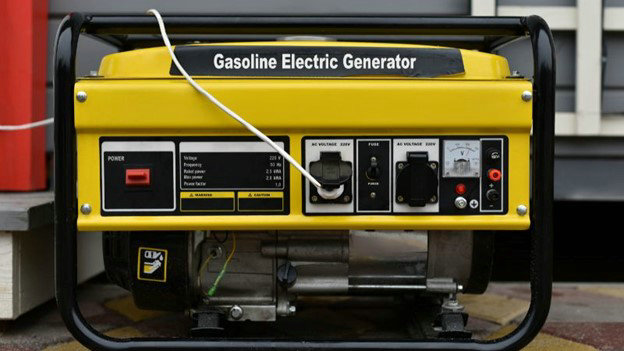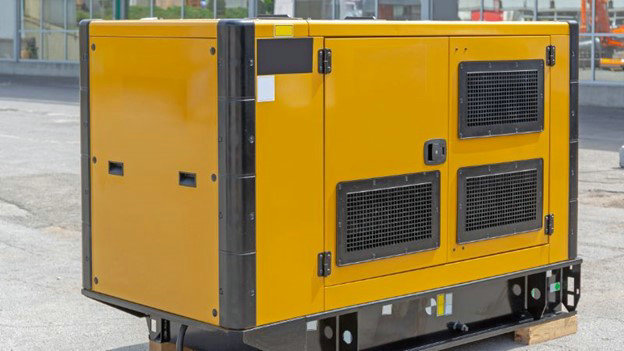In today’s world, where power outages can disrupt daily life and business operations, having a reliable source of backup power is essential. Generators play a pivotal role in ensuring that homes, businesses, and essential services remain operational during unexpected power failures.
This comprehensive guide explores the various types of generators available, their applications, and how to choose the right one for your needs.
Understanding Generators
What is a Generator?
A generator is a device that converts mechanical energy into electrical energy, providing power when the main electrical supply is unavailable.
How Generators Work
Generators operate on the principle of electromagnetic induction. An engine drives an alternator, causing it to rotate and produce electricity. This process involves the movement of a conductor through a magnetic field, generating an electrical current.
Key Components of a Generator
- Engine: Provides the mechanical energy needed to drive the alternator.
- Alternator: Converts mechanical energy into electrical energy.
- Fuel System: Supplies the engine with fuel, which can be diesel, gasoline, natural gas, propane, or other fuels.
- Cooling and Exhaust Systems: Manage the heat produced and safely expel exhaust gases.
- Control Panel: Monitors and controls the generator’s operation, including start/stop functions and electrical output.
Common Uses and Applications
Generators cater to diverse needs across residential, commercial, industrial, and recreational settings.
- Residential: Backup power for homes to keep essential appliances running.
- Commercial: Ensuring continuous operation of businesses and office buildings.
- Industrial: Powering manufacturing and large-scale operations.
- Recreational: Providing electricity for camping, RVs, and outdoor events.

10 Different Types of Generators
Generators come in various forms and sizes, each tailored to specific power needs and applications. Understanding the differences between these types is crucial for selecting the right generator for your requirements. Below is an in-depth look at the ten different types of generators, highlighting their features, advantages, disadvantages, and ideal use cases.
1. Portable Generators

Overview:
Portable generators are versatile, movable power units designed to provide temporary electrical power. They are commonly used for short-term power needs, such as during power outages, outdoor events, or on construction sites.
Features and Specifications:
- Power Output: Typically ranges from 500 watts to 17,500 watts.
- Fuel Type: Generally powered by gasoline, but some models use diesel or propane.
- Run Time: Average run time of 7 to 12 hours on a full tank at 50% load.
- Outlets: Equipped with multiple outlets, including 120V standard outlets and 240V outlets for heavy-duty equipment.
- Mobility: Designed with handles and wheels for easy transportation.
Advantages:
- Mobility: Easily transported to different locations as needed.
- Versatility: Suitable for a wide range of applications.
- Affordability: Generally less expensive than larger, stationary generators.
Disadvantages:
- Noise Levels: Can be quite loud, typically 70-90 decibels.
- Fuel Storage: Requires safe storage of fuel, which can be hazardous.
- Manual Operation: Usually requires manual start and monitoring.
Best Use Cases:
- Emergency Home Use: Powering essential appliances during outages.
- Outdoor Activities: Camping, tailgating, and RVing.
- Job Sites: Providing power for tools and equipment where electricity is unavailable.
2. Inverter Generators
Overview:
Inverter generators produce clean and stable power suitable for sensitive electronics. They are known for their quiet operation and fuel efficiency.
Features and Specifications:
- Power Output: Typically between 1,000 to 5,000 watts.
- Technology: Converts AC power to DC and then back to AC, reducing harmonic distortion.
- Fuel Efficiency: Engine speed adjusts to match the load demand.
- Noise Levels: Quieter operation, often 50-60 decibels.
Advantages:
- Fuel Efficiency: Use less fuel due to engine speed adjustments.
- Quiet Operation: Suitable for noise-sensitive environments.
Disadvantages:
- Higher Cost: More expensive than standard portable generators.
- Limited Power Output: Not ideal for heavy-duty equipment.
Best Use Cases:
- Recreational Activities: Camping and boating.
- Home Backup: Running essential electronics during outages.
- Outdoor Events: Providing quiet power for events.
3. Standby Generators
Overview:
Standby generators are permanent installations that automatically provide power during an outage. They are connected to a building’s electrical system and fuel supply, offering seamless backup power.
Features and Specifications:
- Power Output: Ranges from 7,000 watts to several hundred kilowatts.
- Fuel Type: Typically use natural gas or liquid propane.
- Automatic Transfer Switch (ATS): Automatically detects power loss and starts the generator.
Ideal Scenarios for Use:
- Residential Homes: Especially in areas prone to severe weather.
- Businesses: Retail stores, offices, and critical infrastructure.
- Healthcare Facilities: Hospitals and clinics requiring uninterrupted power.
Advantages:
- Convenience: No manual intervention needed during outages.
- Property Value: Can increase the value of a property.
Disadvantages:
- Cost: High initial investment and installation cost.
- Maintenance: Requires regular servicing.
4. Solar Generators
Overview:
Solar generators use energy from the sun to produce electricity. They are environmentally friendly and ideal for renewable energy enthusiasts.
Features and Specifications:
- Components: Includes solar panels, battery storage, charge controller, and inverter.
- Power Output: Varies based on the system size; typically supports small to medium loads.
- Portability: Available in portable units and larger stationary installations.
Advantages:
- Low Operating Costs: After initial investment, sunlight is free.
- Minimal Maintenance: Solar panels require minimal upkeep.
Disadvantages:
- Weather Dependent: Performance varies with sunlight availability.
- Upfront Costs: Higher initial investment compared to conventional generators.
Best Use Cases:
- Off-Grid Living: Homes and cabins in remote locations.
- Emergency Backup: For critical devices during outages.
- Portable Power: Small units for camping or outdoor activities.
5. Diesel Generators
Overview:
Diesel generators are known for their durability and efficiency, making them a favorite in industrial settings. They use diesel fuel, which provides more energy per unit than gasoline.
Features and Specifications:
- Power Output: From 5 kW to over 3,000 kW for industrial models.
- Fuel Efficiency: 30-50% more efficient than gasoline engines.
- Engine Life: Longer lifespan due to sturdier engine construction.
Common Applications in Industry:
- Data Centers: Backup power for critical systems.
- Construction Sites: Powering heavy machinery.
- Mining Operations: Remote power supply.
Advantages:
- Reliability: Less likely to fail under heavy use.
- Fuel Efficiency: Lower operating costs over time.
Disadvantages:
- Emissions: Higher emissions unless equipped with after-treatment systems.
- Noise: Generally louder than gasoline or propane generators.
6. Gasoline Generators

Overview:
Gasoline generators are widely used due to the easy availability of fuel and lower upfront costs. They are suitable for low to medium power needs.
Features and Specifications:
- Power Output: 500 watts to 15,000 watts.
- Fuel Accessibility: Gasoline is readily available.
- Portability: Often portable, suitable for quick deployment.
Portability Advantages:
- Lightweight: Easier to move and transport.
- Compact Size: Takes up less storage space.
Limitations and Safety Concerns:
- Fuel Stability: Gasoline degrades over time; additives may be needed.
- Fire Hazard: Highly flammable, requiring careful storage.
- Shorter Lifespan: Less durable than diesel engines.
Best Use Cases:
- Short-Term Power: Ideal for temporary use during outages.
- Outdoor Events: Providing power for parties or gatherings.
- DIY Projects: Running tools in areas without power access.
7. Natural Gas Generators
Overview:
Natural gas generators are connected to a natural gas line, providing a constant fuel supply. They are efficient and produce fewer emissions than diesel or gasoline generators.
Features and Specifications:
- Power Output: Suitable for residential to industrial applications.
- Fuel Supply: Connected to the natural gas grid.
- Efficiency: Consistent performance and lower operating costs.
Usage in Residential Settings:
- Standby Power: Commonly used for whole-house generators.
- Continuous Operation: Can run indefinitely during outages.
Advantages:
- Cost-Effective: Lower fuel costs compared to diesel or gasoline.
- Environmentally Friendly: Reduces carbon footprint.
Disadvantages:
- Fuel Dependency: Relies on gas utility infrastructure.
- Installation Cost: Requires professional installation and compliance with codes.
8. Propane Generators
Overview:
Propane generators use liquefied petroleum gas (LPG) as a fuel source. Propane is a clean-burning fuel that can be stored indefinitely.
Features and Specifications:
- Power Output: Varies from small portable units to large standby generators.
- Fuel Storage: Stored in tanks ranging from small cylinders to large bulk tanks.
- Dual-Fuel Capability: Some generators can run on both propane and gasoline.
Advantages:
- Fuel Stability: Ideal for standby applications where fuel may sit unused.
- Versatility: Suitable for residential, commercial, and RV use.
Disadvantages:
- Fuel Consumption: Less energy-dense than diesel; may require more fuel.
- Storage Requirements: Propane tanks can be large and cumbersome.
9. Hydrogen Generators
Overview:
Hydrogen generators produce electricity through a chemical reaction in fuel cells, combining hydrogen and oxygen to generate water and electricity.
Features and Specifications:
- Emissions: Produces only water vapor; zero greenhouse gases.
- Efficiency: High energy conversion efficiency.
- Quiet Operation: Minimal noise due to lack of moving parts.
Advantages:
- Environmental Impact: Exceptionally clean energy source.
- Renewable Potential: Hydrogen can be produced from renewable resources.
Disadvantages:
- Infrastructure: Limited availability of hydrogen refueling stations.
- Cost: High initial investment and operational costs.
- Storage and Safety: Hydrogen storage requires high-pressure tanks and safety precautions.
Best Use Cases:
- Specialized Applications: Backup power for critical systems.
- Research and Development: Exploring alternative energy solutions.
- Remote Locations: Where traditional fuel supply is challenging.
10. Wind Generators
Overview:
Wind generators, or wind turbines, convert kinetic wind energy into electrical energy. They are a cornerstone of renewable energy strategies.
Features and Specifications:
- Power Output: Small turbines produce 400 watts to 20 kilowatts; large turbines generate up to several megawatts.
- Design: Consists of blades, rotor, gearbox, and generator mounted on a tower.
- Site Requirements: Best suited for areas with consistent wind speeds of +9 mph.
Applications and Suitability:
- Residential Use: Small turbines can lower electricity bills.
- Commercial Use: Large-scale wind farms supply power to the grid.
- Remote Power: Ideal for isolated areas without grid access.
Advantages:
- Environmental Impact: No emissions during operation.
- Cost Savings: Reduces electricity costs over time.
Disadvantages:
- Intermittent Power: Dependent on wind availability.
- Initial Costs: High upfront cost for equipment and installation.

How to Choose the Right Generator
- Assessing Power Requirements
Determine the total wattage needed by listing all appliances and devices you plan to power simultaneously.
- Calculating Wattage Needs
Add up the starting and running watts of each appliance to ensure the generator can handle the load without overloading.
- Fuel Type Considerations
Select a generator based on the availability, cost, and storage requirements of different fuels. Here are the pros and cons of different fuels:
Gasoline: Widely available but volatile and less energy-dense.
Diesel: Efficient and durable but higher maintenance.
Natural Gas: Clean and convenient for standby use but requires a gas line connection.
Propane: Clean-burning and storable but may have less energy density than diesel.
- Portability vs. Permanence
Decide whether you need a portable generator for temporary use or a standby generator for permanent installation based on your specific usage scenarios.
- Noise Levels and Environmental Impact
Consider generators with noise-reducing features and lower emissions to minimize disturbance and environmental footprint, especially for residential and recreational use.
- Budget and Cost of Ownership
Evaluate not only the initial purchase price but also the long-term costs associated with fuel, maintenance, and repairs to find a generator that fits your financial plans.
- Brand Reputation and Warranty
Choose generators from reputable brands that offer reliable performance, good customer support, and comprehensive warranties to ensure quality and peace of mind.
Generators are vital for providing backup power across various settings, from residential homes to industrial operations. By understanding the different types of generators and their specific applications, you can select the perfect generator to meet your power needs, ensuring reliability and peace of mind during any power disruption.
Looking for a Professional Generator Supplier?

If you are searching for a reliable and professional generator supplier for your business needs, look no further than GRETECH. With years of experience in the power generation industry, Gretech stands out as a trusted partner. We offer a wide range of high-quality generators, such as hybrid generators, petrol generators, and engine water pumps, tailored to various applications.
